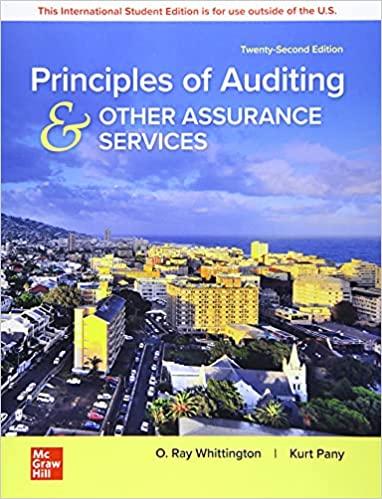MCQS Which of the following parties is responsible for the fairness of the representations made in financial statements? O Audit committee. O Client's management. O Independent auditor. O AICPA. The first PCAOB general standard recognizes that regardless of how capable an individual may be in other fields, the individual cannot meet the requirements of the auditing standards without the proper: O Business and finance courses. O Quality control and peer review. O Supervision and review skills. O Education and experience in auditing. Which of the following is not an auditor's responsibility?* Determining the overall fairness of financial statements. O Testing management assertions against established criteria. O Preparing the financial statements. Issuing audit report to accompany financial statements. Any service that requires a CPA firm to issue a report about the reliability of an assertion that is made by another party is a(n):* O Attestation service. O Accounting and bookkeeping service. Assurance service. Tax service. Due professional care requires * The examination of all available corroborating evidence. The exercise of error-free judgment. A study and review of internal controls that includes tests of controls. Auditors to plan and perform their duties with the skill and care that is commonly expected of accounting professionals. Which is not an attribute of an external auditor?* Client advocacy. O Independence. Concern for the public interest. Objectivity External auditors are referred to as "external" because * They are paid by parties outside of the audited entity. O Their offices are not at the entity's place of business. They report to users outside of the audited entity. They are not employees of the entity being audited. The sufficiency of audit evidence is a measure of the:* O Quality of audit evidence. . O Quantity of audit evidence. Reliability of audit evidence. Relevance of audit evidence. docs.google.com BACC430 Assessment 1 Auditors can be classified under these types: * O External auditors, internal auditors, government auditors, and forensic auditors External auditors, internal auditors, segment auditors, and corporation auditors External auditors, internal auditors, department auditors, and forensic auditors External auditors, internal auditors, and forensic auditors The auditor must be independent of the audit client unless * O The lack of independence does not influence his or her professional judgment. Both parties agree that the independence issue is not a problem. The lack of independence is insignificant. None of the above-the auditor cannot lack independence. The three sections or groups of audit standards are: * O Field work, reporting, and general. O Field work, general, and final. Field work, general, and overall. Field work, testing, and internal control review. The scope paragraph states that the audit is designed to: * Obtain reasonable assurance whether the statements are free of material misstatement. Discover all errors and/or irregularities. O Discover material errors and/or irregularities Conform to generally accepted accounting principles. Forensic audits include all of the following except * O Criminal investigations. O Employee fraud. O Manufacturers' assertions about product quality. Management fraud. Which of the following is not included in the broad category of assurance services? Accounting or review services. Evaluation of the client's risk management framework. Reporting on internal control. Operational audit. In the scope paragraph of the standard unqualified audit report the auditor should list explicitly: * The accounting principles used by the company The auditing standards followed by the auditor O The accounting principles and the auditing standards None of the answers. The basic purpose of a financial statement audit is to O Examine individual transactions so that the auditor may certify as to their validity. O Assure the consistent application of correct accounting procedures. Provide assurance regarding whether the client's financial statements are fairly stated. Detect fraud. The primary responsibility for the adequacy of disclosures in the financial statements of a publicly held company rests with the * Auditor in charge of the fieldwork. Securities and Exchange Commission. Partner assigned to the audit engagement. Management of the company. The three PCAOB general standards are concerned with: O Adequate training and proficiency of the auditor, proper planning and supervision, and due professional care. O Adequate training and independence. Due professional care. Both second and third choices Members of the Public Company Accounting Oversight Board are appointed and overseen by: * O The U.S. Congress O The Auditing Standards Board. O The Securities and Exchange Commission. The American Institute of Certified Public Accountants. After planning the audit, the auditor should:* Conducts substantive tests, including analytical procedures to test the account balances. Establish materiality and assess the client's business risks. Understands and evaluates the client's internal control. Evaluate whether the evidence is relevant and reliable


























